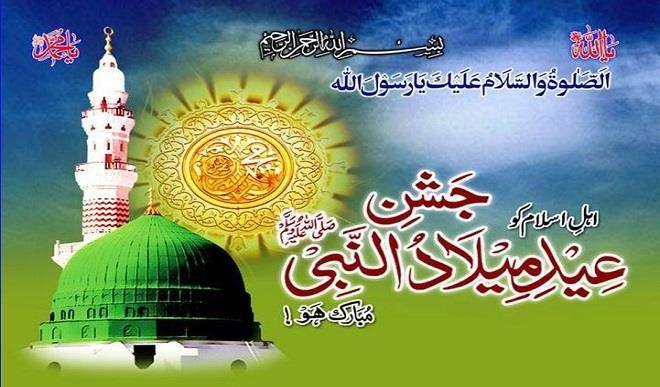As 12th Rabi’ Al-Awwal approaches – Ustaz Abdulmuhyi
Milad-un Nabi or Maulid (Mawlid) is another eid for Muslim sects that celebrate it as the birthday of Prophet Muhammad (pbuh). It is actually observed as the Eid-e Milad, though other denominations including the Wahabi and Salafi disapprove of the commemoration, considering it as a religious innovation (bid’ah) that is not necessary. Prophet Muhammad (pbuh) […]


Milad-un Nabi or Maulid (Mawlid) is another eid for Muslim sects that celebrate it as the birthday of Prophet Muhammad (pbuh). It is actually observed as the Eid-e Milad, though other denominations including the Wahabi and Salafi disapprove of the commemoration, considering it as a religious innovation (bid’ah) that is not necessary.
Prophet Muhammad (pbuh) was born in the city of Makkah, Arabia, on the 12th day of Rabi’ul-Awwal, which was a Monday (corresponding to the 20th day of April, 571 A.C). This is the most popular date from a list of many that are reported as the date of his (pbuh) birth.
Whatever the nomenclature, however, the event is one that is highly abhorred by majority of Muslims who condemn it as an innovation; a bid’ah copied from unIslamic sources.
An Islamic scholar, Ustaz Abdun-Nasir Abdulmuhyi, Deputy Chairman, Administration, Ulama Council of Jama’atu Izalatil Bid’ah Wa Iqamatus Sunnah (JIBWIS), Jos, spoke to Daily Trust in Abuja, Monday, on Mawlid in the Holy Qur’an and the Sunnah.
He said: “The Prophet (Sallalahu alaihi Wasallam) did not celebrate his own Mawlid – that is his birth or naming ceremony. The only thing he did on the day of his birth which was a Monday, was that he observed fast. He never celebrated the 12th day of the third month of the Hijri year – Rabi’ul Awwal.
“He (pbuh) was asked: ‘Why do you fast Mondays?’ And he said, ‘This is the day I was born in’, and Allah (Subhanahu Wa Ta’ala) revealed the Quran on a Monday to him. So, this goes to guide those who wish to celebrate the birthday of the Prophet to fast every Monday and engage in acceptable work to bolster obedience and fear of Allah in them.
“The bid’ah of mawlid was initiated by Al-‘Ubaydiyyon. They were atheists that ruled the Fatimi state.
“The bid’ah was without doubt not practiced by the respected first three generations of the Muslim nation. It is an innovation, a misguidance. And he (pbuh) has said, “Every bid’ah (innovation) is misguidance…” (Ahmad, Tirmidhi and others).
“The Muslim ummah know that all innovations are rejected by Allah (SWT) since the Prophet (pbuh) has enjoined us that,“He who does something which is not according to what we (i.e., the Prophet (pbuh) and his companions) are upon then it is rejected.” Muslim has reported.
“We must also beware and not forget the report by Bukhari, Muslim and Tirmidhi, that the Prophet (pbuh) said: ‘The best of mankind are my generation, then those who come after them, then those who come after them. Then there will come a people who will not care if their testimony comes before their oath or vice.’
“And of course we must always keep in mind that not one of the respected Imams – Abu Hanifa, Malik, Shafi’i, Ahmad, al-Hasan al-Basri, Ibn Sirin – commemorated the Prophet’s (pbuh) birthday or directed others to do so as something worth observing. Mawlid was not even mentioned during the first and best three centuries which the Prophet (pbuh) said in a sahih hadith reported by al-Bukhari, Muslim and al-Tirmidhi, as “the best of mankind.”
“So the celebration of the Prophet’s birthday started many centuries later, when many of the features of true religion had vanished and bid’ah had become widespread.
“The Alim (jurists) and other respected authors condemn the celebration which among others, allows for Islamically unacceptable intermingling of people of both sexes, of all ages, beating of bands, singing and other forms of unnecessary merry-making. One of such writers, Muhammadu Riddah an Egyptian, in his book titled, ‘Muhammadun-Rasulullah’ explained the wrong motion of some Muslims who consider mawlid as something worthy of observance in Islamic tenet and principles. May Allah sustain His guidance for the Muslim.”
